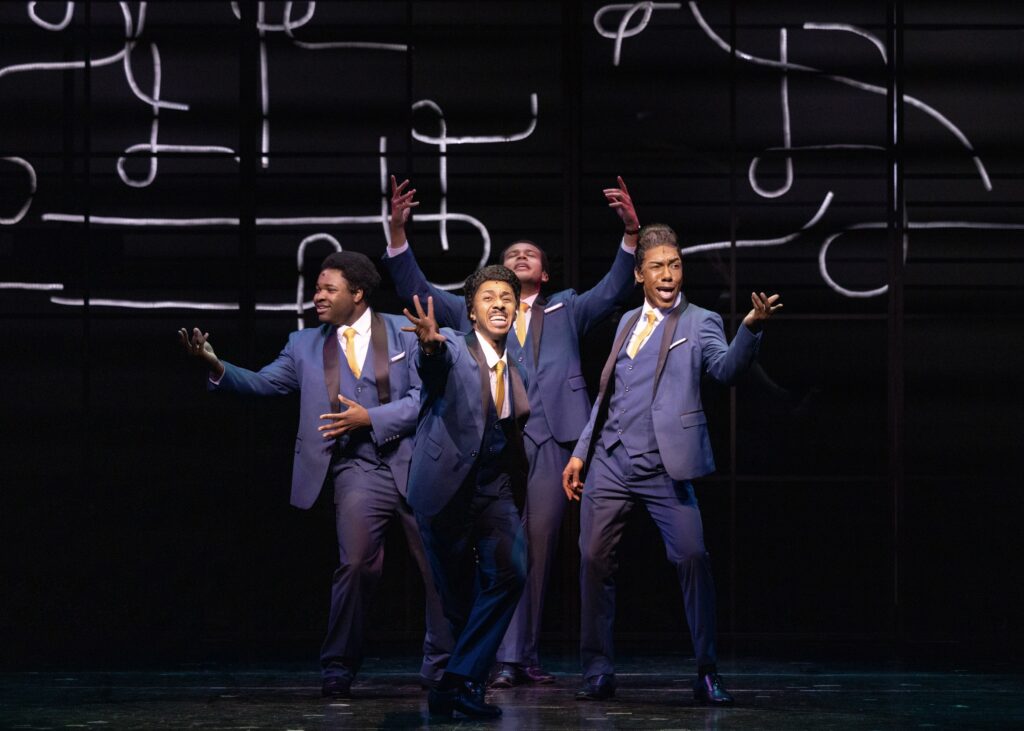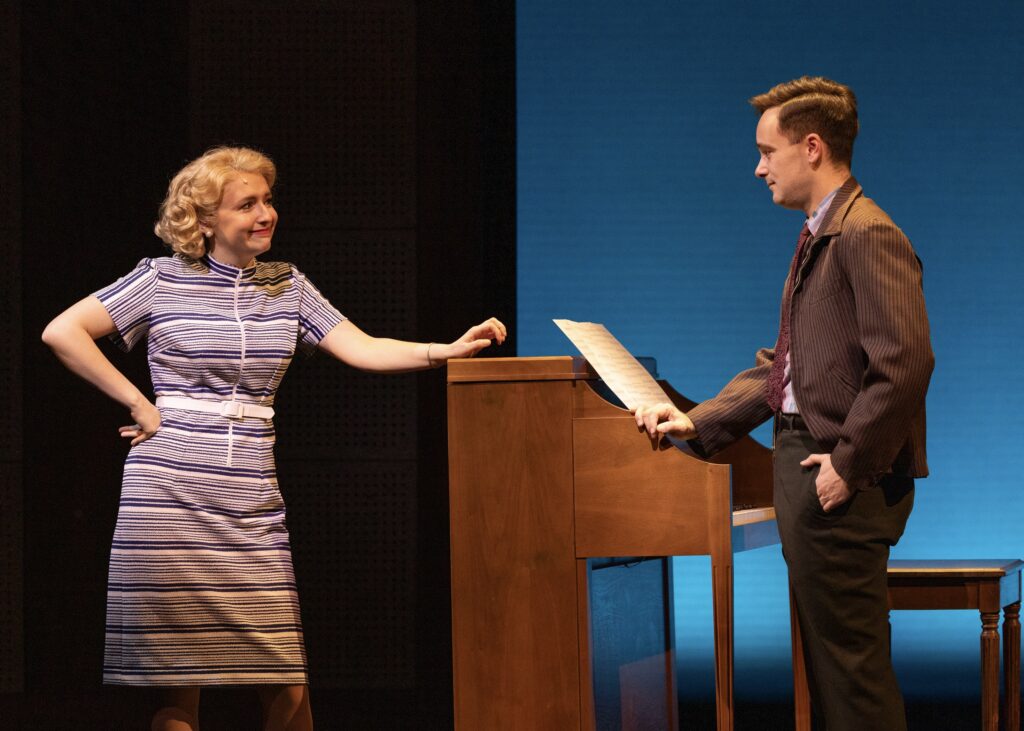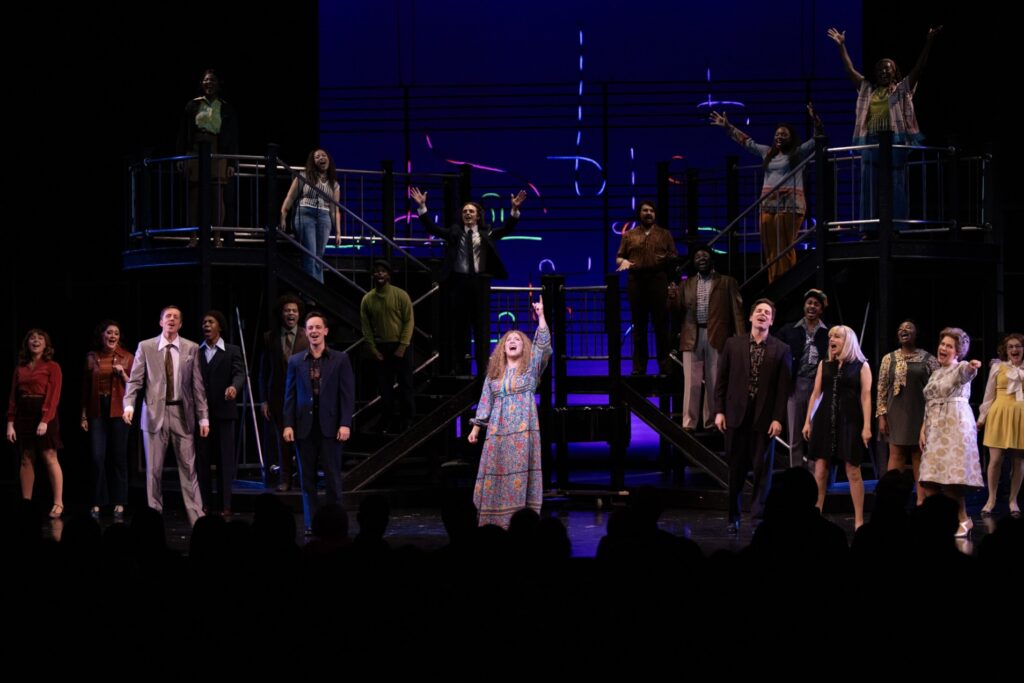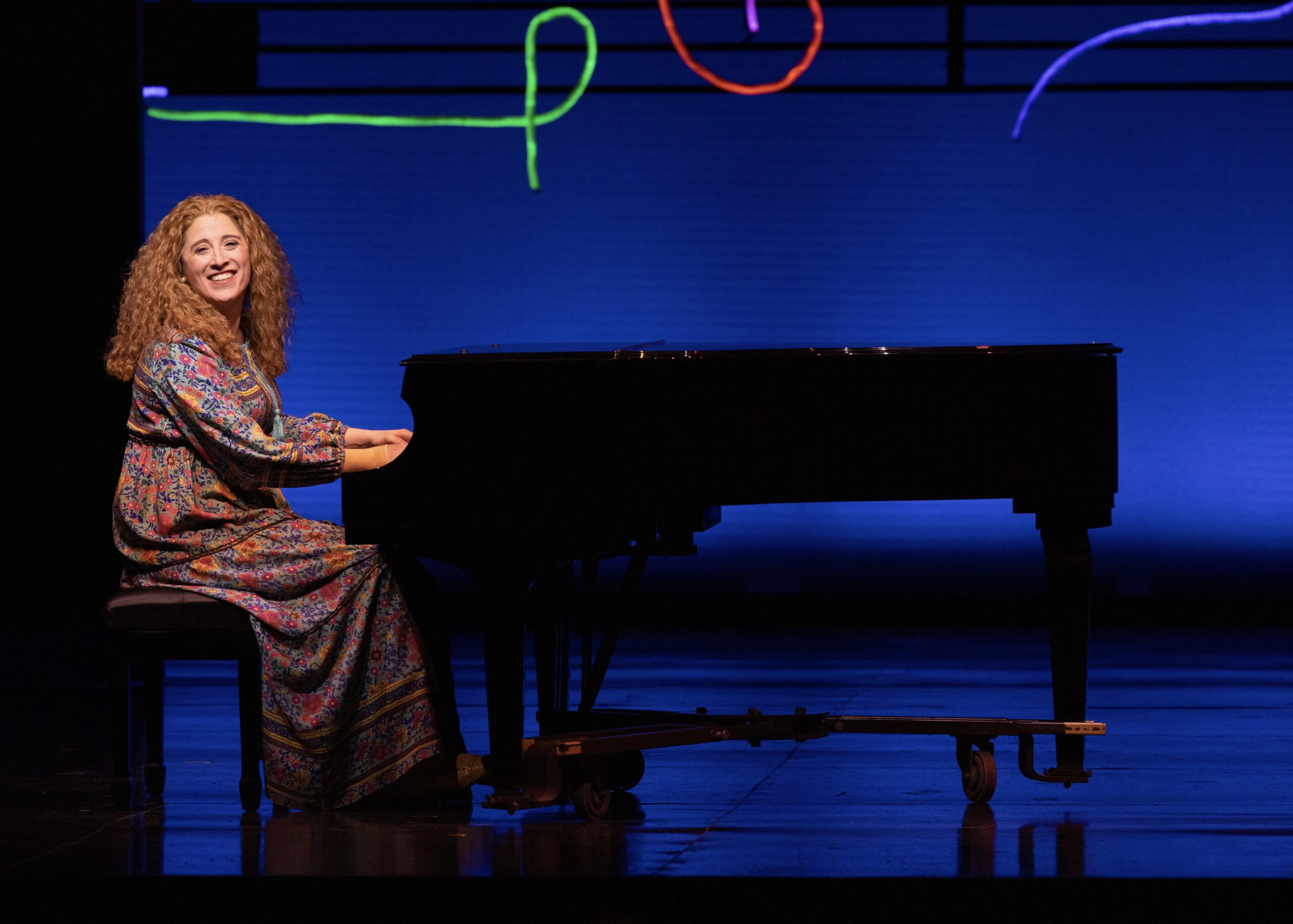SALT LAKE CITY — Beautiful: The Carole King Musical first opened on Broadway in January of 2014. King herself wrote or cowrote over 118 hits, so making a jukebox musical biopic of her life gives the team of writers rich material to pull from. At Pioneer Theatre Company in Salt Lake City, this delightful evening of entertainment, directed by Karen Azenberg, is everything that is good about the genre of the jukebox musical.
Encompassing not only the life of King, played in fantastic fashion by Sara Shepard, but her husband and writing partner Gerry Goffin, played by Anthony Sagaria, friends and writing competitors Barry Mann (Stephen Christopher Anthony) and Cynthia Weil (Lee Alexandra Harrington) as well as many others in the industry from the early 1960s on are featured throughout the story by book writer Douglas McGrath. There is certainly something Beautiful (yes, pun intended) in watching the stories unfold of the actual music and lyricists of the songs that are being featured on stage.

One joy that I found this particular evening was the small moments of recognition, the sighs and gasps as people realized just how many songs they knew by these famous writing teams. Watching the process of a song come together felt like getting an intimate view on the creative process. Each of the main players wove an exquisite tapestry (yes, pun again) of emotion and energy that left me believing I was watching history unfold, not just a dramatic retelling.
Because the music is fundamental to this story, the orchestra led by music director and conductor Helen Gregory gave me chills. When a show is full of familiar songs, it is essential to get to the heart of each tune. Some of the major highlights where the musicality and recognition were at their highest were the songs “Will You Still Love Me Tomorrow” and “Pleasant Valley Sunday.” Additionally, there were other moments when the song, acting, and direction came together to create truly pleasurable moments. The combination of filming “One Fine Day” for broadcast television while King’s character showed her emotional connection to the words on the sideline was heart wrenching. Quite the opposite but equally as tear-jerking, the lovely way that the iconic song “You’ve Got A Friend” was used in the show to emphasize the beautiful friendships formed through the years of music creation was a perfect scene.

Because the music of the time was full of dance songs, choreography is an important element of this show. Choreographer Gerry Mcintyre struck a good balance between creating the old iconic dances and adding new fun elements. I felt this was showcased best with the song “Locomotion”, where the character Little Eva, played by Grace Ellis Solomon, absolutely shines, from the dancing to vocals and sheer charisma.
The costume design by Kara Harmon was impeccable. I enjoyed watching the styles change over the years in the show. I have always been a fan of the 1950s style of clothing, so to have the production start out in those style of dresses left me jealous of almost every outfit. I found the transition of costumes seamless, but I also really enjoyed the thoughtful changes of hairstyles by hair and makeup designer Kate Casalino. Casalino paid attention to personalities, making sure that the hairstyle and outfit changes matched how the characters behaved and felt about themselves.

Shepard’s portrayal of King felt deep and personal. King’s career as a songwriter turned eventual singer is a journey of self-discovery and acceptance. As a therapist and a woman it resonates deeply with me. Shepard’s ability to be unassuming and self-dismissing at times, yet give into the music was iconic. In one scene she dismisses herself as someone who is just a regular person, and nobody wants to see regular people sing. This is a common thought that many of us struggle with, wondering if or why our skills would be needed or noticed. The skill with which she played that line was strong, and made her triumphs of recording and performing her own albums even more, yes, here it is again, Beautiful.
[box]Beautiful the Carole King Musical plays February 14-March 1 at 7:00 PM (M-Th), 7:30 PM (F-S), and 2:00 PM Matinees (Saturdays), at the Simmons Pioneer Memorial Theatre, 300 South 1400 East, Salt Lake City. Tickets are $57-83 online, $5 more at the door. Pay what you can day on Monday, February 17th. More info at pioneertheatre.org.[/box]
